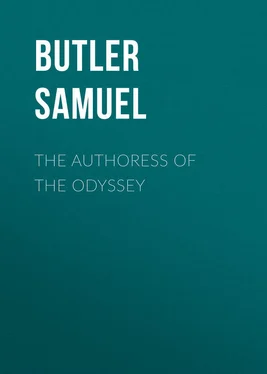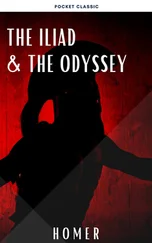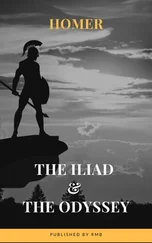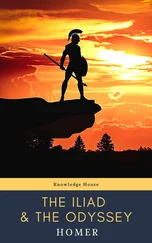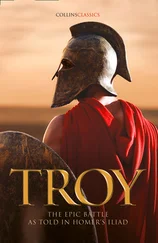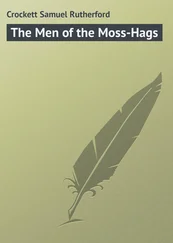Samuel Butler - The Authoress of the Odyssey
Здесь есть возможность читать онлайн «Samuel Butler - The Authoress of the Odyssey» — ознакомительный отрывок электронной книги совершенно бесплатно, а после прочтения отрывка купить полную версию. В некоторых случаях можно слушать аудио, скачать через торрент в формате fb2 и присутствует краткое содержание. Жанр: foreign_antique, foreign_prose, на английском языке. Описание произведения, (предисловие) а так же отзывы посетителей доступны на портале библиотеки ЛибКат.
- Название:The Authoress of the Odyssey
- Автор:
- Жанр:
- Год:неизвестен
- ISBN:нет данных
- Рейтинг книги:5 / 5. Голосов: 1
-
Избранное:Добавить в избранное
- Отзывы:
-
Ваша оценка:
- 100
- 1
- 2
- 3
- 4
- 5
The Authoress of the Odyssey: краткое содержание, описание и аннотация
Предлагаем к чтению аннотацию, описание, краткое содержание или предисловие (зависит от того, что написал сам автор книги «The Authoress of the Odyssey»). Если вы не нашли необходимую информацию о книге — напишите в комментариях, мы постараемся отыскать её.
The Authoress of the Odyssey — читать онлайн ознакомительный отрывок
Ниже представлен текст книги, разбитый по страницам. Система сохранения места последней прочитанной страницы, позволяет с удобством читать онлайн бесплатно книгу «The Authoress of the Odyssey», без необходимости каждый раз заново искать на чём Вы остановились. Поставьте закладку, и сможете в любой момент перейти на страницу, на которой закончили чтение.
Интервал:
Закладка:
Furthermore, the people who are most shocked by the use of Latin names for Greek gods and heroes, and who most insist on the many small innovations which any one who opens a volume of the Classical Review may discover for himself, are the very ones who have done most to foist Wolf and German criticism upon us, and who are most tainted with that affectation of higher critical taste and insight, which men of the world distrust, and which has brought the word "academic" into use as expressive of everything which sensible people will avoid. I dare not, therefore, follow these men till time has shown whether they are faddists or no. Nevertheless, if I find the opinion of those whom I respect goes against me in this matter, I shall adopt the Greek names in any new edition of my book that may be asked for. I need hardly say that I have consulted many excellent scholars as to which course I should take, and have found them generally, though not always, approve of my keeping to the names with which Pope and others have already familiarised the public.
Since Chapter XIV. was beyond reach of modification, I have asked the authorities of the British Museum to accept a copy of the Odyssey with all the Iliadic passages underlined and referred to in M.S. I have every reason to believe that this will very shortly be indexed under my name, and (I regret to say) also under that of Homer. It is my intention within the next few weeks to offer the Museum an Iliad with all passages borrowed by the writer of the Odyssey underlined – reference being given to the Odyssean passage in which they occur.
Lastly, I would express my great obligations to my friend Mr. H. Festing Jones, who in two successive years has verified all topographical details on the ground itself, and to whom I have referred throughout my work whenever I have been in doubt or difficulty.
September 27th, 1897.PREFACE TO SECOND EDITION
It may be said that we owe this book, The Authoress of the Odyssey , to Charles Lamb. Butler, in his early days, had read all the usual English classics that young people read-Dickens, Tennyson, Thackeray, Scott, Lamb, and so on; as he grew older, however, he became more absorbed in his own work and had no time for general reading. When people allege want of time as an excuse for not doing something, they are usually trying to conceal their laziness. But laziness was not the reason why Butler refused to read books except for the purpose of whatever he was writing. It was that he was a martyr to self-indulgence, and the sin that did most easily beset him was over-work. He was St. Anthony, and the world of books was his desert, full of charming appearances assumed by demons who were bent on luring him to perdition. His refusal was not the cry of the slothful: "Yet a little sleep, a little slumber, a little folding of the hands to sleep"; it was the "Get thee behind me, Satan!" of one who is seeking salvation. For he knew his weakness and that temptation comes in such unexpected shapes that the only way of escape is by perpetual watching and praying lest we fall. So he watched and prayed, and kept his powder dry by minding his own business. The Devil, how- ever, was on the watch also and had an inspiration; he baited his subtle hook with a combination fly composed partly of the gentle Elia and partly of the Rev. Canon Ainger. He knew that Butler, if he approached either of these authors, would do so without suspicion, because he had looked over his victim's shoulder one morning in the Reading Room of the British Museum while he was making this note:
"Charles Lamb was like Mr. Darwin, 'a master of happy simplicity.' Sometimes, of course, he says very good things, at any rate some very good things have been ascribed to him; but more commonly he is forced, faint, full of false sentiment and prolix. I believe that he and his sister hated one another, as only very near relations can hate. He made capital out of his supposed admirable treatment of her. Aunt Sarah likes him, so do most old maids who were told what they ought to like about 55 yeara ago, but I never find men whom I think well of admire him. As for Ainger's Life , well, my sisters like it."
We need not agree, and I personally disagree, with Butler's view of the relations between Charles and Mary Lamb, for it seems to me that it is not supported by the Letters of Lamb. I do not suppose, however, that Butler intended his words to be taken very seriously; nor are they intended to be taken as direct abuse of Lamb. They are addressed rather to Lamb's admirers, and are conceived in the spirit of the Athenian, whose reason for helping to ostracise Aristides was that he was so bored by hearing him perpetually called "the Just." They are Butler's way of saying: "Don't you go and suppose that I should ever have anything to do with self-sacrifice and devotion." And yet his own life shows that he was himself capable of both; but, like many Englishmen, he was shy of displaying emotion or of admitting that he experienced it. When we remember that he had not read the Letters we can understand his being put off Lamb first by the Essays, and then by the admirers – Aunt Sarah, the old maids, and Canon Ainger. We must also remember that Canon Ainger used to go and stay down at Shrewsbury with a clergyman who, among other dissipations which he organised for his guest, took him to tea with Butler's sisters, where he played on their old piano which had been chosen by Mendelssohn. Nevertheless it might have been better for Butler if he had not made the note, for retribution followed.
In June, 1886, while we were completing the words and music of our cantata Narcissus , which was published in 1888, Butler wrote to Miss Butler:
"The successor of Narcissus is to be called Ulysses; and is this time a serious work dealing with the wanderings of the real Ulysses, and treating the subject much as Hercules or Semele was treated by Handel. We think we could get some sailor choruses, and some Circe and pig choruses, and the sirens, and then Penelope and her loom all afford scope. I made up my mind about it when I read Charles Lamb's translation of parts of the 'Odyssey' in Ainger's book, but please don't say anything about it." { Memoir , II, 38.)
The serpent was lurking within the leaves of Ainger's book, and Butler was beguiled. The idea of using the story of the "Odyssey" for the words of an oratorio led him on to re-reading the poem in the original; but he could not make much progress just then because after his father's death, in December, 1886, he came into possession of all his grandfather's papers, and succumbed to the temptation of reading them and of writing Dr. Butler's life. When he did settle down to the poem it fascinated him, and there followed the further irresistible temptation of translating it. His grandfather's life still kept him so fully occupied that he did not reach Book ix till 1891; and then, as he writes in Chapter i of The Authoress of the Odyssey : "It was not till I got to Circe that it flashed upon me that I was reading the work not of an old man but of a young woman." And on a letter of 9th August, 1891, which I sent to him at Chiavenna, he made this note:
"It was during the few days that I was at Chiavenna (at the Hotel Grotta Crimee) that I hit upon the female authorship of the 'Odyssey.' I did not find out its having been written at Trapani till 1892."
Between 1892, when he made this discovery, and 1902, when he died, Butler published the Life and Letters of Dr. Samuel Butler, Erewhon Revisited , and a new and revised edition of Erewhon . These three books were the working off of material which was already in his mind, but everything else published during the last decade of his life grew directly out of the "Odyssey." There was a pamphlet entitled The Humour of Homer (1892), which was first delivered as a lecture at the Working Men's College; there were two other pamphlets which appeared in a Sicilian magazine (1893 and 1894), one of these being translated into English and published in 1893; there were articles about his Odyssean theories in The Italian Gazette, then under the editorship of Miss Helen Zimmern, published in Florence. In 1897 came The Authoress of the Odyssey ; in 1898, The Iliad Rendered into English Prose ; in 1899, Shakespeare's Sonnets Reconsidered ; and in 1900, The Odyssey Rendered into English Prose . Besides these publications there were letters and articles about the "Odyssey" in the Athenœum , the Eagle and Il Lambruschini , a journal published at Trapani in Sicily.
Читать дальшеИнтервал:
Закладка:
Похожие книги на «The Authoress of the Odyssey»
Представляем Вашему вниманию похожие книги на «The Authoress of the Odyssey» списком для выбора. Мы отобрали схожую по названию и смыслу литературу в надежде предоставить читателям больше вариантов отыскать новые, интересные, ещё непрочитанные произведения.
Обсуждение, отзывы о книге «The Authoress of the Odyssey» и просто собственные мнения читателей. Оставьте ваши комментарии, напишите, что Вы думаете о произведении, его смысле или главных героях. Укажите что конкретно понравилось, а что нет, и почему Вы так считаете.
